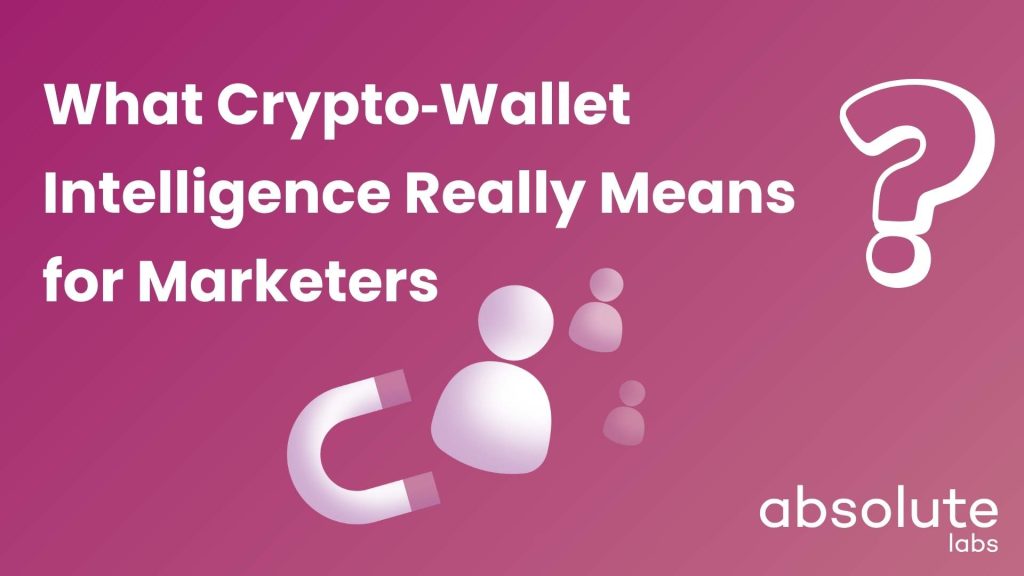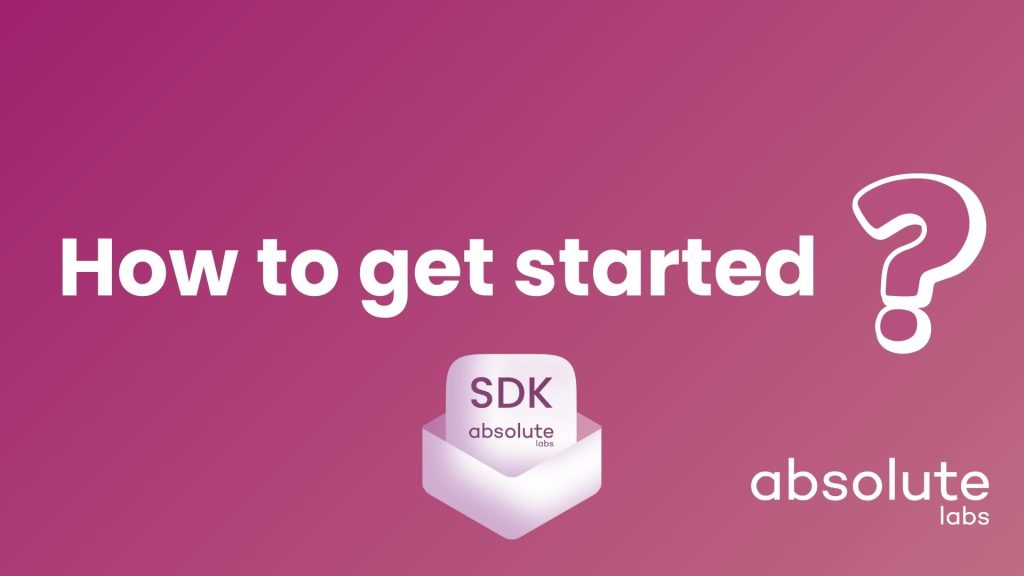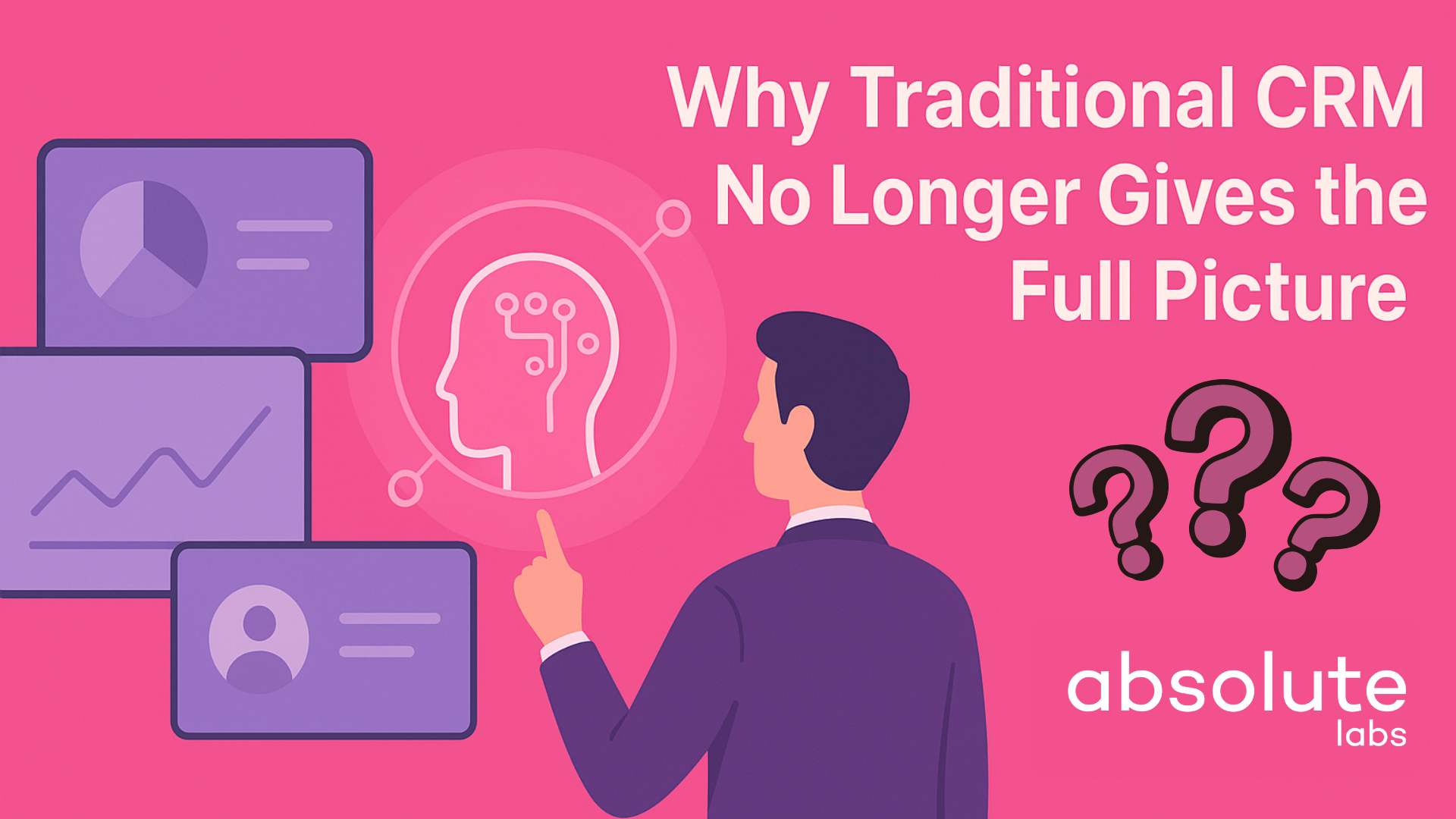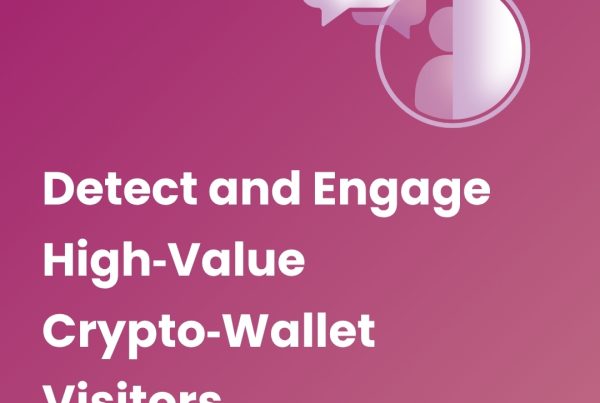
Crypto-wallet intelligence is transforming how marketers understand and engage their audiences.
Marketers have long relied on declared data, cookies, and purchase history to understand their customers. But what happens when high‑value visitors remain completely anonymous? Crypto‑wallet intelligence changes the game, providing marketers with a new layer of insight: verifiable, privacy‑respecting signals about customer interests, digital behavior, and spending power, all from the very first visit.
1. Why Crypto-Wallet Intelligence Matters for CRM
Over the past two decades, CRM systems have become the central repository for customer knowledge. But they are built on Web2‑era assumptions:
- You can track customers via cookies or device IDs.
- You can gather insights once they log in, subscribe, or make a purchase.
- Your most valuable data comes from your owned channels.
In practice, this leaves a huge blind spot:
- Anonymous visitors: A significant portion of high‑spending traffic doesn’t log in or fill out forms.
- Fragmented behavior: Valuable customers interact with communities, marketplaces, and platforms you don’t control.
- Limited personalization: Without knowing who they are, your ability to deliver relevant content or offers is restricted.
This is particularly true in sectors like luxury, travel, fashion, and gaming, where VIP clients prefer frictionless browsing and don’t engage through traditional sign‑ups, but represent some of the highest‑value opportunities.
Why it matters:
If your CRM can’t “see” these visitors, you can’t build meaningful engagement strategies for them, leaving money (and loyalty) on the table.
2. What Is Crypto‑Wallet Intelligence?
A crypto‑wallet is more than a payment tool: it’s a persistent, portable digital identity. By analyzing crypto‑wallet data (with the user’s consent), brands can access a new class of first‑party‑like signals:
- Identity markers: Active crypto‑wallets serve as unique, verifiable identifiers across platforms.
- Digital behavior: Types of digital assets owned (e.g., fashion collectibles, gaming tokens) and interaction history.
- Spending power: Estimated liquidity and portfolio value, a proxy for potential customer lifetime value.
- Community affiliation: Engagement in Web3 ecosystems (brands, communities, marketplaces) indicating loyalty and preferences.
In simple terms: Wallet intelligence lets you understand who your visitors are, what they care about, and how much they could spend, without relying on cookies or declared data.
3. Using Crypto-Wallet Intelligence for Better Segmentation
One of the most powerful applications of crypto‑wallet intelligence is the ability to create personas and score profiles based on their wallet data.
Personas:
By analyzing wallet holdings and activity, you can group visitors into meaningful segments. Examples include:
- Luxury Collectors: Holders of high‑value fashion or art‑related digital assets, with a pattern of premium purchases.
- Frequent Travelers: Crypto‑wallet profiles showing high liquidity and engagement with travel‑related Web3 ecosystems (e.g., loyalty programs or travel‑oriented digital assets).
- Tech Enthusiasts: Users holding assets in emerging networks and engaging with cutting‑edge projects.
Scoring:
Each visitor can be scored on dimensions such as:
- Buying power: Estimated liquidity and portfolio value.
- Engagement level: Frequency and diversity of on‑chain activity.
- Brand affinity: Interaction with communities or assets related to your category.
Why it matters:
Instead of guessing who your high‑value visitors are, you can quantify their potential value and prioritize engagement accordingly.
4. From Insight to Action: Real‑World Use Cases
Here’s how forward‑thinking brands are already using these insights:
- Luxury retail: A high‑end brand identified that 8% of its website traffic came from crypto‑wallets with significant buying power. They built a dedicated VIP campaign (token‑gated exclusive access + in‑store events), driving double‑digit CRM capture growth.
- Travel & hospitality: A global hospitality group used wallet scoring to prioritize frequent travelers with high liquidity for loyalty program invitations, resulting in 2.5x higher engagement rates compared to traditional outreach.
- Fashion ecommerce: A retailer segmented “digital‑savvy shoppers” holding fashion‑related assets and pushed personalized product drops, achieving 3‑5x higher conversion rates than their baseline audience.

5. How to Get Started
Step 1: Detect
Deploy the Absolute SDK to passively detect crypto‑wallet connections on your website or mobile app, without requiring logins or disrupting the experience.
Step 2: Request consent
Through a wallet‑connect interaction, request explicit user consent to access their wallet identity, ensuring transparency and compliance.
Step 3: Enrich & score
Combine wallet‑based insights (buying power, asset types, engagement level) with your Web2 data to create unified profiles and assign scores for prioritization.
Step 4: Activate
Use these enriched profiles to deliver personalized offers, VIP experiences, or tailored acquisition campaigns.
Step 5: Measure & refine
Leverage the Absolute SDK’s dashboards to monitor performance, refine your segmentation, and continuously optimize your engagement strategies.
Conclusion
Crypto‑wallet intelligence is more than a new data source, it’s a strategic lever for marketers.
By transforming anonymous traffic into rich, actionable profiles, you can build better personas, prioritize high‑value customers, and drive personalized engagement at scale.
Curious to know how many high‑value crypto‑wallet visitors are already coming to your site?
📥 Download our latest State of Crypto Commerce & Payments report for the latest data and insights.
Continue the series CRM Enrichment in the Web3 Era:
- Part 2: From Anonymous to VIP – Learn how to detect and engage high-value crypto-wallet visitors.
- Part 3: Segment Smarter – Learn how to build advanced segmentation strategies.
- Part 4: CRM 3.0 – See how crypto-wallet data integrates into next-generation CRM systems.
5 Misconceptions About Crypto‑Wallet Data
“It’s only for crypto payments.”
No, crypto-wallets reflect broader behavior and preferences.
“It’s too technical for marketing teams.”
With the right tools, these insights are accessible and actionable.
“It’s personal data.”
Crypto-wallet addresses are public identifiers; enrichment only happens with consent.
“It’s a niche audience.”
There are 521M active crypto‑wallets globally (July 2025).
“It requires launching NFTs.”
Not at all, you can gain insights without creating tokens or assets.











